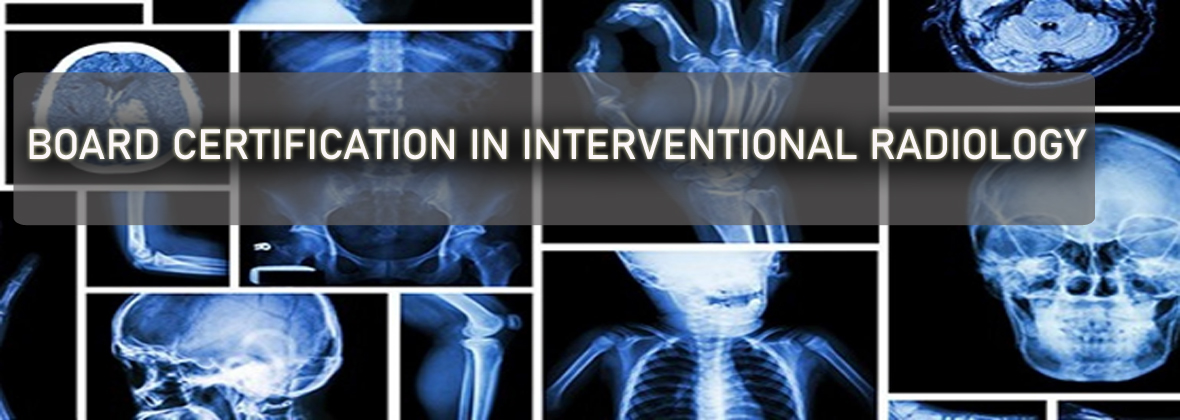
![]()
Interventional Radiology (IR) is a subspecialty of radiology in which minimally invasive procedures are performed using image guidance to treat many vascular and non-vascular diseases. The fact that most of the procedures can be done under local anaesthesia makes it an attractive option when general anaesthesia carries risks due to patient’s co morbid conditions. The minimally invasive nature of the procedures reduces patient morbidity compared to surgical procedures, shortening the hospital stay, especially in ICU. Consequent lowering of health budget makes the procedures more cost effective.
Interventional Radiology has to be practised by Radiologists trained in diagnostic radiology as it involves image interpretation. An Interventional Radiologist is expected to develop competency in safe and effective practice of many complex invasive therapeutic procedures extending into all branches of radiology. Therefore a comprehensive understanding of core knowledge in general radiology is an essential pre requisite.
Large numbers of Interventional Radiology procedures are done using ionising radiation for image guidance. Only radiologists have a comprehensive training in radiation hazards and radiation protection which make them the most suitable and eligible to practise these procedures considering safety of patients, staff and public.
Training in Interventional Radiology has to include General Interventional Radiology excluding interventional Neuroradiology procedures (IR) and Interventional Neuroradiology (INR).
![]()
Expected outcome of this training programme is to provide knowledge, skills and attitudes specifically required to practice as competent Interventional Radiologists to fulfill the health service needs and demands of Sri Lanka.
At the end of the training programme the trainee should have developed
- The necessary practical skills to perform key interventional procedures independently.
- A professional attitude and good conduct towards all aspects of clinical practice leading to improvement of patient care.
- An ability for proper decision making using practical application of knowledge.
- Capability of functioning as the leader of IR team and as a responsible member of MDT.
- An interest for continuing medical education and research.
- A healthy outlook for allowing accurate self-assessment and learning from experience.
![]()
- Successful completion of MD Radiology examination held immediately before the allocation meeting.
- Trainee should not be previously Board Certified by the PGIM in any specialty or subspecialty
Please refer to the relevant prospectus for the most up to date information. The prospectus of a particular programme contains official information pertaining to a programme approved by the Board of Management, University Senate and the University Grants Commission